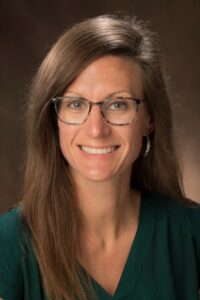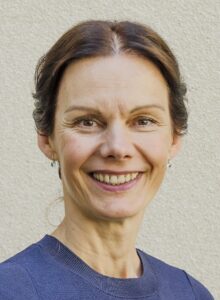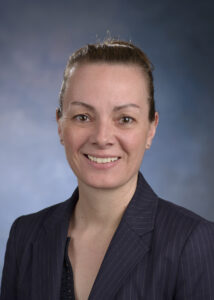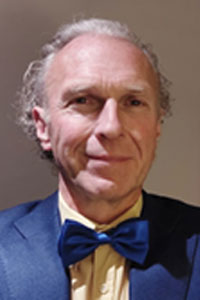We are delighted to share that there are four candidates who have expressed their enthusiasm and willingness to provide leadership to the future of ISPA. Please review the candidate statements and bios below:
President candidate
Statement of Amity Noltemeyer, United States of America
 I am grateful to be considered for the role of President Elect of ISPA.
I am grateful to be considered for the role of President Elect of ISPA.
As I transition out of six years as Editor-in-Chief and an additional year as Co-Editor of School Psychology International journal, I cannot think of a more exciting way to continue my involvement in the global school psychology community. If elected, I would work tirelessly to advance the aims of the association to promote effective practice, improve collaboration between professionals committed to improving student well-being, and expand the role and visibility of school psychologists globally.I believe several prior leadership experiences position me to effectively advance the mission of ISPA. These include:
Co-Principal Investigator on External Grants (2011 to present)
- Co-managed over $8 million in total external funding since 2011, primarily focused on school wellness and positive behavioral support initiatives.
- Collaborated with multiple funders at the national, state, and local level.
Associate Dean, Miami University Graduate School (August 2021 to present)
- Collaborate with others across campus to develop and implement graduate policies, procedures, communications, events, and professional development.
- Oversee graduate student and graduate faculty awards and scholarships/assistantships, while also securing additional funding for these efforts.
Editor-in-Chief, School Psychology International Journal (January 1 2016-December 31 2021)
- Point of contact for journal planning, operations, and manuscript processing, while overseeing a global Editorial Board of 60+ Senior Associate Editors, Associate Editors, and Methodological Advisors.
- Increased submissions, impact factor, diverse representation, and social justice initiatives.
Chair, Department of Educational Psychology, Miami University (August 2018-August 2021)
- Supported faculty and staff in delivering high quality in-person, hybrid, and online instruction to students in seven degree programs, three certificate programs, and two minors.
- Oversaw curriculum, resource allocation, hiring, performance evaluations, academic integrity, accreditation, partnerships, promotion and tenure, staffing plans, course scheduling, and governance.
President Elect/President/Past President, the Ohio School Psychologists Association (April 2012-April 2015)
- Guided the direction of this roughly 1,000-member organization for three years as President Elect, President, and Past President.
- Worked with constituents to develop and implement the organization’s first 5-year strategic plan and first equal opportunity and nondiscrimination statement.
Associate Director, Doris Bergen Center for Human Development, Learning, and Technology (April 2017-August 2021)
- Worked with co-Directors to invite new affiliates, oversee graduate student assistant, encourage interdisciplinary grant proposals, and communicate with the Executive Board and affiliates.
- Co-organized inter-disciplinary research seminars, colloquia, and networking events.
Program Coordinator, School Psychology Program, Miami University (May 2014-August 2019)
- Oversaw curriculum, recruiting, admissions, graduate assistantships, accreditation, advising, and program events.
- Established partnerships internally and externally to offer students Graduate Assistantships.
Through these experiences, I have collaborated with diverse constituents towards shared goals; communicated transparently and regularly; prioritized globalization, diversity, equity, and inclusion; generated revenue to support shared goals while managing existing resources fairly and strategically; and supported high quality and evidence-informed practices. Beyond formal leadership roles, my prior experience as a school psychologist and 12+ years in my current school psychology faculty position are also fundamental to my interest and qualifications for this position.
If elected, I would offer listening sessions to hear ISPA leaders’ and members’ thoughts on organizational strengths and assets, as well as opportunities for improvement, innovation, and growth. In addition to ideas generated through those sessions, my goals would include:
- Increase ISPA membership and engagement, with particular attention to currently under-represented regions and populations.
- Implement a new campaign to secure additional support for ISPA awards that address financial barriers to membership or engagement (e.g., Cal Catterall Fund, Membership Sponsoring Program).
- Continue and expand current efforts to provide accessible, timely, inclusive, and evidence-based resources and information.
- Increase the visibility of ISPA regionally and globally (e.g., through member spotlights, media opportunities, journal content promotion, coordination with regional and local organizations, and social media strategy).
My past experiences with ISPA and ISPA conferences left me feeling energized, inspired, and full of new ideas. It would be a privilege to learn from and work alongside ISPA leadership, members, and partners to further advance the important work of the organization.
Read More
President candidate
Statement of Baiba Martinsone, Latvia
 The statement for the position of President-Elect of the ISPA reveals my path in psychology in general and connection to the Association in particular.
The statement for the position of President-Elect of the ISPA reveals my path in psychology in general and connection to the Association in particular.
Under the Soviet regime, psychology was not practiced as a profession in Latvia; neither was it offered as an educational subject. I initially graduated from the University of Latvia as a biologist and teacher of biology and chemistry, and started working at a school. After Latvia regained its independence, psychology was introduced as a subject in schools, and a study program of psychology was established at the University of Latvia.
Thus, I returned to the University and after nine years of studying graduated as a doctor in Clinical psychology. Soon, I recognized that Clinical psychology is not just about disorders but also about prevention and building resilience to sustain wellbeing. The experience and education in natural sciences, psychology and pedagogy created a strong foundation for my future work as a professional psychologist, faculty member and researcher. Currently, I am professor of Clinical psychology and Senior researcher in Educational psychology at the University of Latvia. I am also a certified Educational and school, Clinical and health, and Counselling psychologist, working in my private practice and collaborating closely with schools. I have been a member of Latvian School psychology association since it was founded, and served as the head of the association’s Ethics board. Now, I am a member of the Psychologists Ethics board.My first ISPA conference as a student participant was in 1998 in Jurmala, Latvia. The high level of presentations, overall emphasis on strong connection between research and practice, and friendly atmosphere let me identify myself with the family of ISPA. Since that time, I have participated in ten more ISPA conferences starting from simply attending, followed by poster presentations and now participating in symposiums and roundtables. The latest news is that I together with colleagues will organize ISPA’2024 conference in Riga!
The most crucial ISPA conference having long-lasting and fundamental consequences was in Athens, Greece, 2005. There I became acquainted with the concept of Social emotional learning (SEL). From this important point, all my efforts were focussed on integrating SEL in the Latvian education system. Through different EU and Erasmus funded projects, we were able to develop and implement our original SEL program with ready to use class lesson plans. We later developed a toolkit for teachers for assessing students’ social emotional skills, and the most recent project we have finished was Promoting Mental Health at Schools. This comprehensive program involves not only students and teachers, but also families, policymakers and wider communities. Simultaneously with the development and implementation of these interventions, their effectiveness was assessed. Within the ISPA, I have found wonderful opportunities to collaborate with outstanding colleagues internationally. I have participated in the Cross-cultural research on school climate (led by Tamika La Salle), School cultural congruity and parental engagement (led by Shane Jimerson), Global perspectives on teachers’ wellbeing and mental health following the COVID-19 pandemic (led by Olympia Palikara, Bonnie Nastasi and Kris Varjas) and COVID-19 related stress and coping of families with children (led by Yayoi Watanabe). Due to this extensive collaboration, the professional network has been developed, and new SEL interventions and research instruments have been introduced in Latvia. During the last years in particular, I have published extensively in scientific journals like Journal of Teacher Education for Sustainability or different sections of Frontiers in Psychology. It provided the necessary evidence to share with policymakers and have an impact on the education system of Latvia. I proposed, defended and advocated SEL ideas, and this year, the Parliament of Latvia adopted the amendment to the General Education Law: “When learning the general education programme, its implementers provide learners with systemic support for the development of social emotional competence” (The amendments to the General Education Law of Latvia entered into force on 8 October 2022).
These years within ISPA have strengthened my attachment to the organization. First, the transfer of leadership through past president to the president-elect is outstanding, and ensures sustainability of ISPA’s values, mission and developmental trajectory. Such activities as spreading school psychology around the world, involving students in ISPA, organizing different interest groups are of special importance. Second, during the COVD-19 pandemic, we became even more aware of the unique resource of schools as protective agents for the wellbeing of every involved child, family and community member, but especially of those in vulnerable position. Strengthening the self-confidence of school psychologists and their capability to communicate their potential with all involved parties would be one of directions of work for the next years. Third, the advocacy of children’s rights and wellbeing of all school community members should be continued by integrating theory and practice. Practice raises issues which should be answered by research and -vice versa- science provides evidence-based strategies for school psychology practice. This synergy of theory and practice, and the inclusive spirit of our global network will strengthen the ISPA to complete its mission and flourish.
Read More
President candidate
Statement of Kris Varjas, United States of America

I am honored to be nominated as a candidate for the President of ISPA. I have been active in the field of school psychology for over 20 years at local, state, national, and international levels. I will bring to this position a range of experiences in research, teaching, administration, advocacy, leadership and service. I have a strong commitment to promoting the psychological well-being of children, school personnel, families, and communities. My research has focused on developing culturally and contextually appropriate programs and interventions through collaboration with colleagues, community members, schools, and organizations around the world.
Support international research that bolsters the psychological well-being of children, adolescents, school personnel and communities
Advocate for school psychologists to participate in social justice efforts in the promotion of psychological well-being of children, adolescents, school personnel and communities
Biographical StatementDr. Varjas received her Psy.D. in school psychology from the University at Albany, State University of New York and her M.S.W. from the University of Connecticut. Dr. Varjas worked as a social worker for several years in a shelter serving women who were homeless. Dr. Varjas has been a faculty member in the CPS department since 2000. She served as the Director of the Center for Research on School Safety, School Climate, and Classroom Management from 2011-2022. Dr. Varjas currently is the Associate Dean for Graduate Studies and Research in the College of Education at Georgia State University. Dr. Varjas’ research efforts include school- and community-based projects investigating staff and teacher wellbeing, mental health, trauma-informed practices, creating safe and affirming classrooms, bullying/cyberbullying, social emotional learning, and school climate. Her interests include international and national mental health promotion, developing culture-specific prevention and intervention programs and the use of mixed methodology in school psychology practice. Dr. Varjas is the co-author of a book published by the American Psychological Association entitled School-Based Mental Health Services: Creating Comprehensive Culturally Appropriate Service Programs. She has received awards from the Georgia Association of School Psychologists (GASP) and Georgia State University for her work with diverse populations internationally and in the United States. Dr. Varjas was a Qualitative Methodological Scholar on the Joint International School Psychology Association-Society for the Study of School Psychology (ISPA-SSSP) Committee on International Research Initiatives in 2007. Dr. Varjas is a member of the Society for the Study of School Psychology (SSSP). She served on the Task Force on the Further Diversification of the SSSP and currently is a member on the SSSP Diversity, Equity and Inclusion Committee. Dr. Varjas served as the Chair of the National Association of School Psychologists (NASP) LGBTQI2-S Committee for seven years. During her tenure, she led the development of 3 positions statements focused on creating safe schools for LGBTQ+ children and youth. Dr. Varjas also served as the APA Division 16 representative to the writing group for the American Psychological Association (APA) and NASP Resolutions (2015; 2020) focused on sexual and gender diverse children and youth in schools. She received the GSU Women’s Basketball Women Empower Women Excel Inaugural Award in 2022 and the Sun Belt Faculty Member of the Year Award, Sun Belt Conference in 2019.
Read More
President candidate
Statement of Patrick Lancksweerdt, Belgium

I would like to run for the position of president elect of this association.
Actually, I am quite new within ISPA. Only in 2019 did I participate in the conference in Basel for the first time. I regret this was the first time!It gave me an incredible feeling to discover that there are school psychologists worldwide working on almost exactly the same things as myself.It gave me a tremendous energy boost, right at a time when I myself was in need of re-energizing in my thoughts and vision for work.SPA stands for me as the global network of school psychologists who strengthen each other in a fascinating exchange of visions, scientific insights, practical implementations in the field and a particularly keen interest in what colleagues are working on worldwide.
Especially captivated by this organization, I immediately offered to organize a next conference in Belgium. To my pleasant surprise, this happened. With a year’s delay, it went ahead in July 2022 in Leuven. It became for me a highlight in my career, where I found it a special honor to chair the first post-covid ISPA conference.
Meanwhile, I am at the end of that professional career as a school psychologist, but not at all at the end of my involvement in the subject. You can get out of school psychology, but school psychology never can get out of you.
I have been a practitioner my whole career, the past 20 years as manager of a Belgian center for pupil guidance, having about 100 employees of different professions. Meanwhile, from its inception, I was a member of the Flemish Association for School Psychology, the last 5 years as its president. I am also a member of the board of the Belgian Federation of Psychologists, where I am the treasurer. I am also involved in several organizations within welfare and education, including the working group corona and psychology, which gave advice to the Belgian government from 2020 to 2022.
I am not an academic, not a theorist, do not have a doctoral degree, do not work at a university and have not written books and am getting an old man. When someone asked me if I wasn’t interested in running for president elect, that was pretty much what I answered. That person said, “So what? You organize things.”
What can I do for ISPA? Well, I am a practical person, who organizes things, who makes sure that others can give their best, who can make contacts between people who are working on the same issues, who can translate from theory to practice.
I’m fairly new to ISPA, but what I did for the ISPA conference in Leuven, I want to do for the whole association: make sure the organization runs smoothly, with a spirit of like-mindedness.
There are challenges enough. On the one hand, there is the ISPA organization itself. There we can put even more effort into strengthening mutual contacts and exchange. We can further ensure more exchange and visibility of what the various committees and working groups are accomplishing. Achieving greater involvement of members and future members is also a challenge for the coming years. This is certainly the case for those countries that are not currently members of ISPA.
On the other hand, there are the major challenges in our society. Poverty, lack of opportunities for good education, war, but also climate change are issues that are close to the hearts of children and youth. School psychologists can also be significant here. After all, as school psychologists we have a dual role: to be a listening ear and helping hand for our clients, but at the same time to be a voice in making policy people aware of what is alive and what is needed. On the international level, we can start sharing good practices in how to influence governments to do the right things.
It would be a great honor for me at the end of my professional career to still be able to chair this wonderful international organization.
Read More

